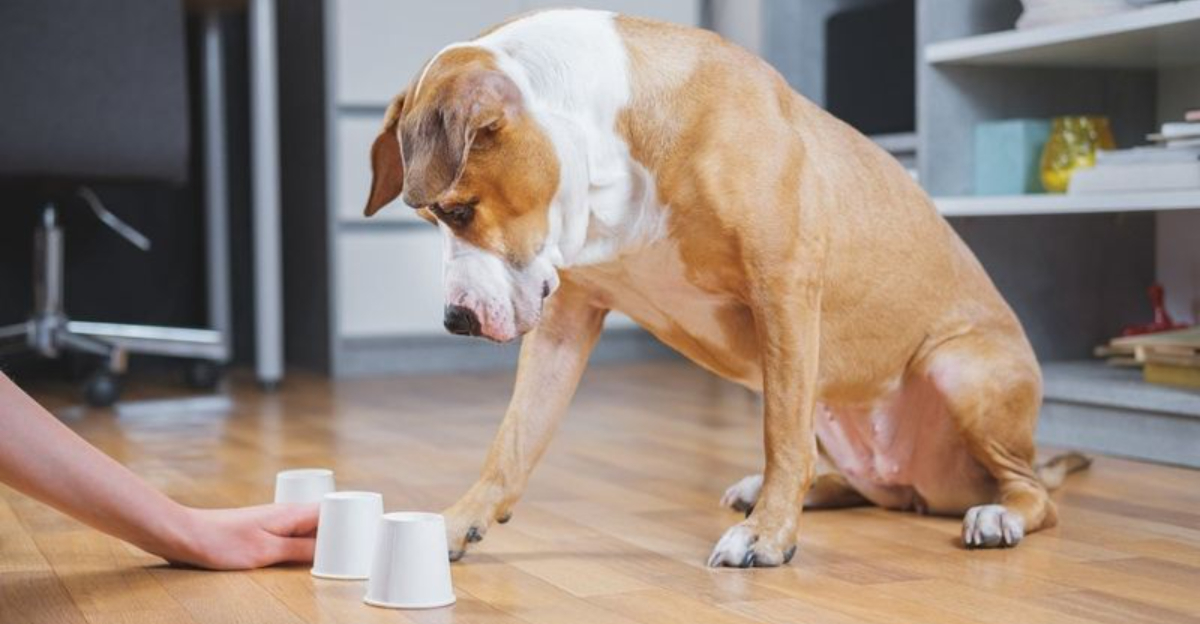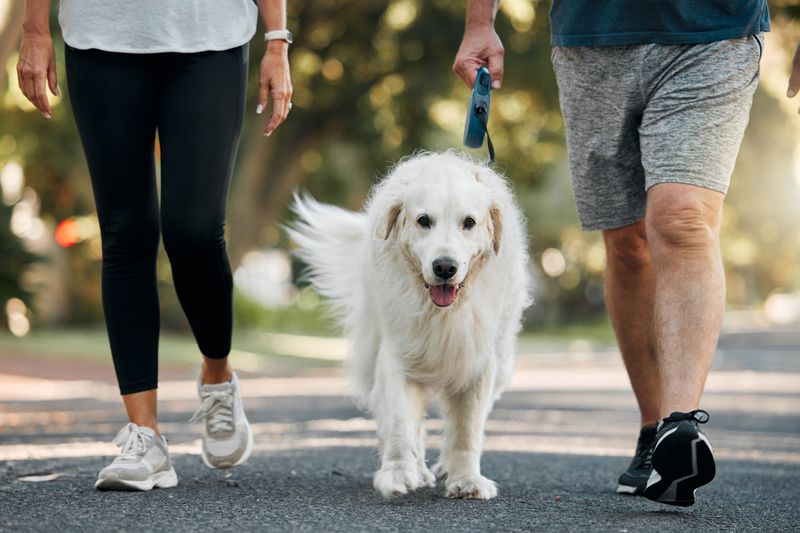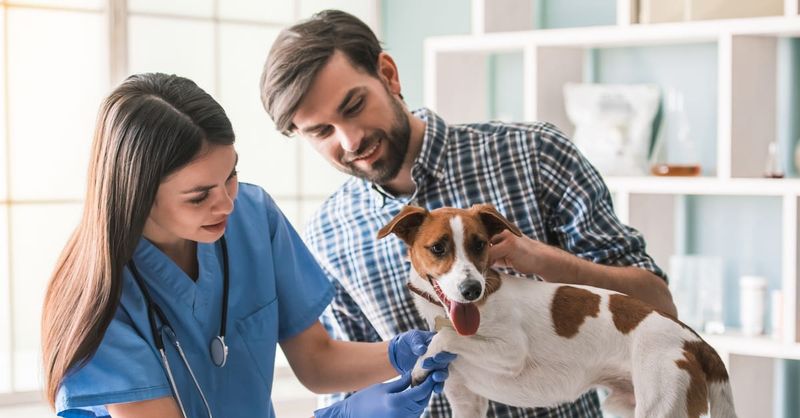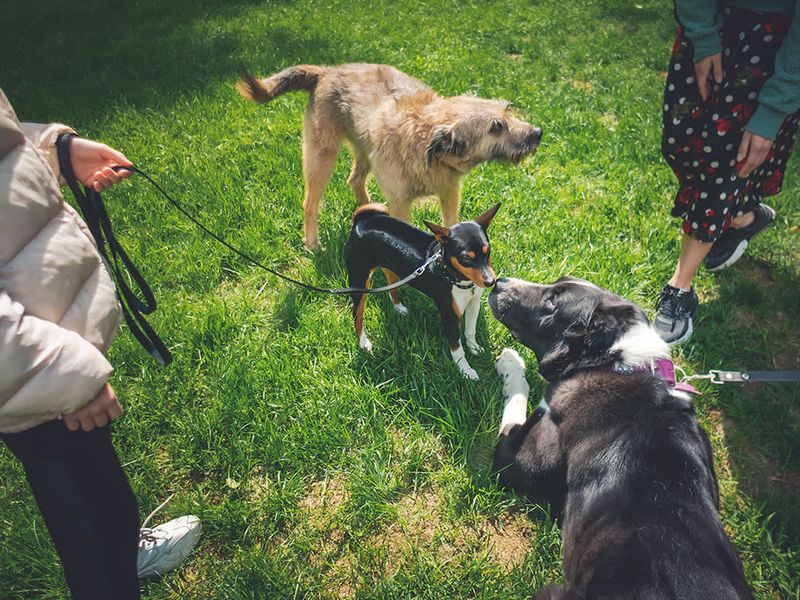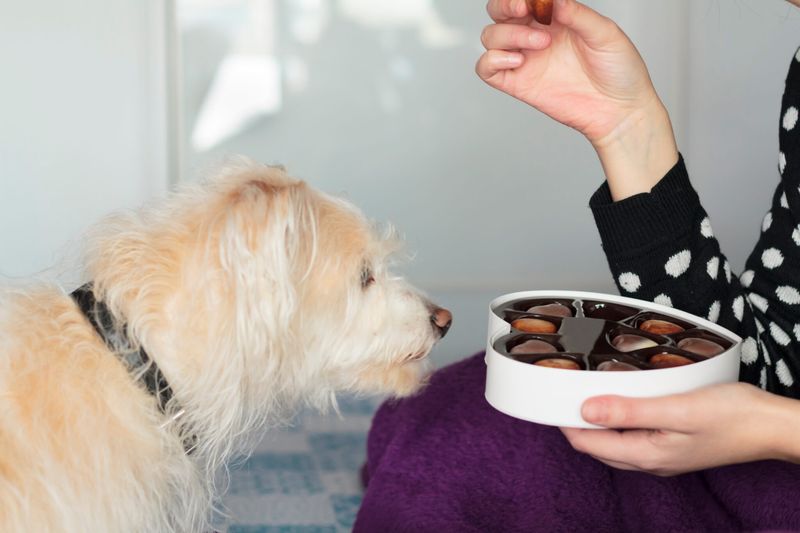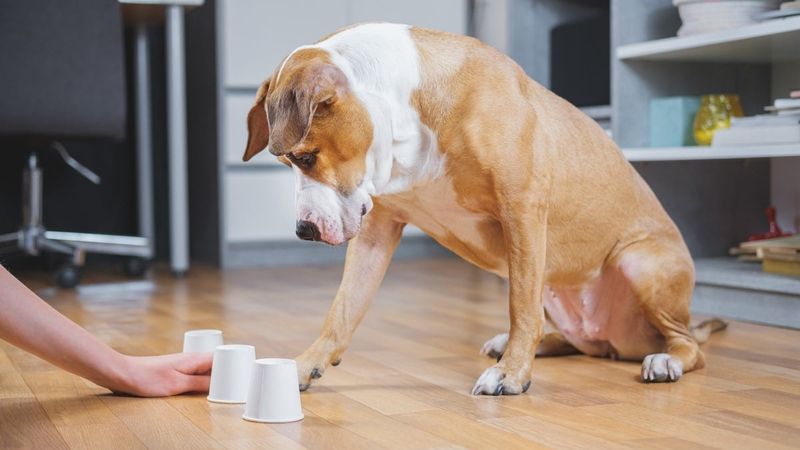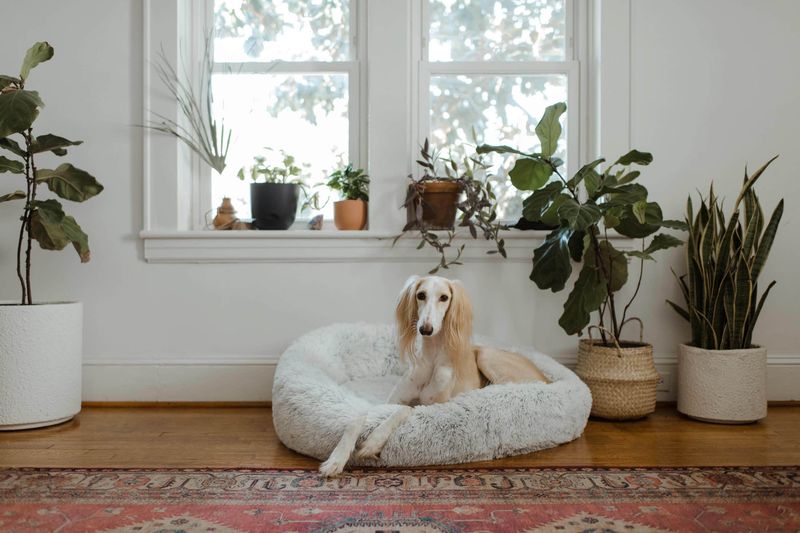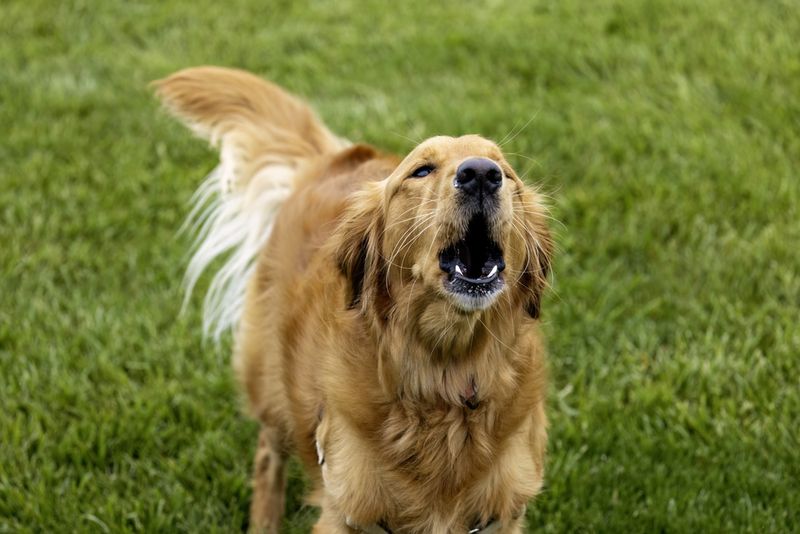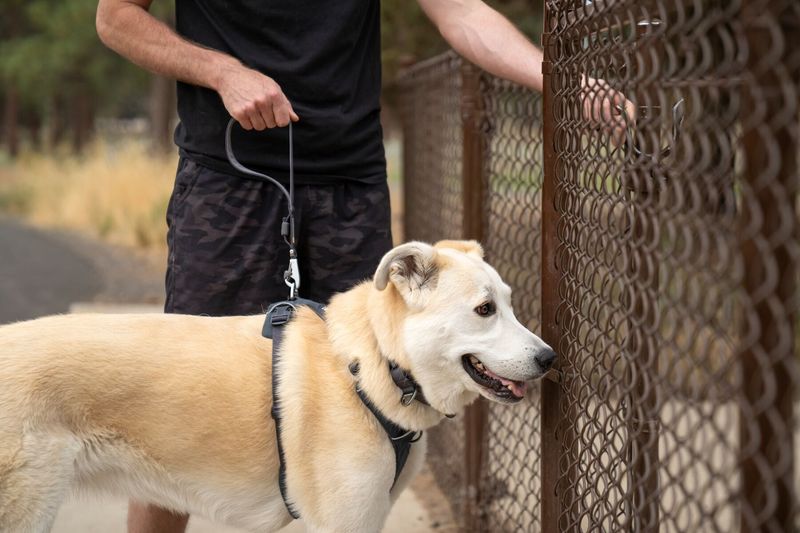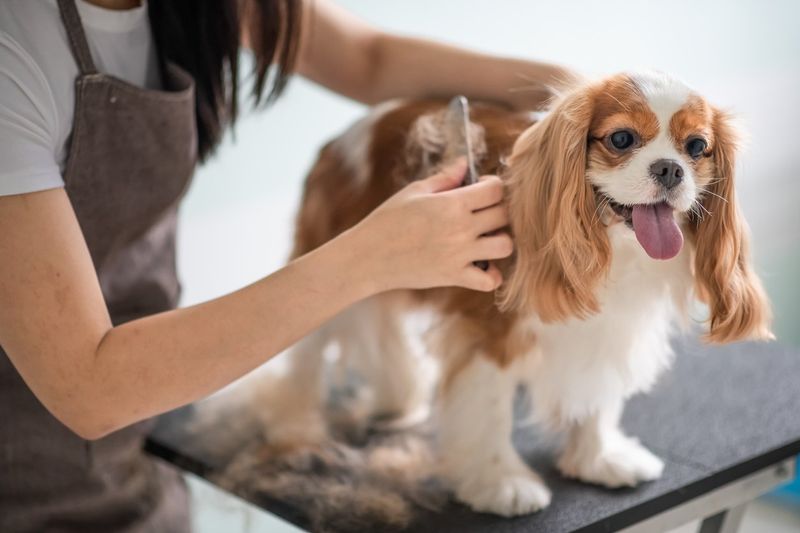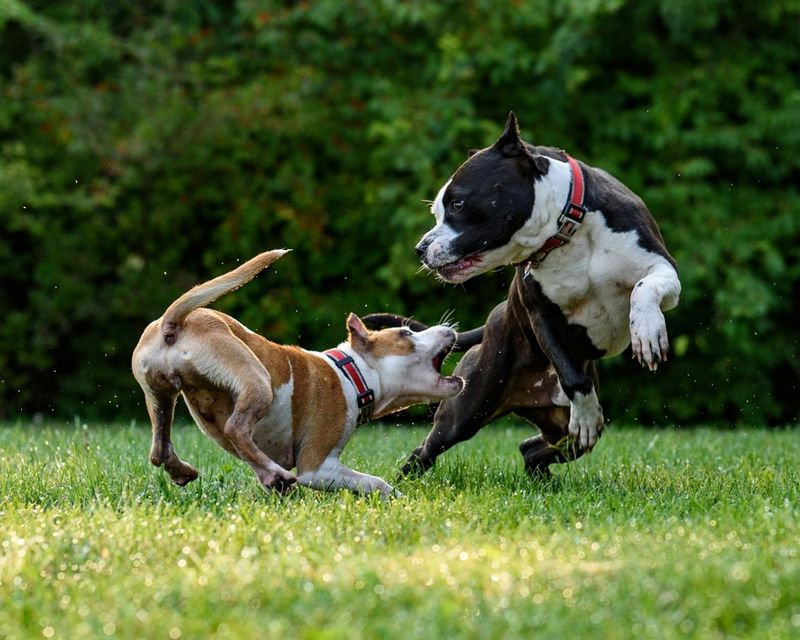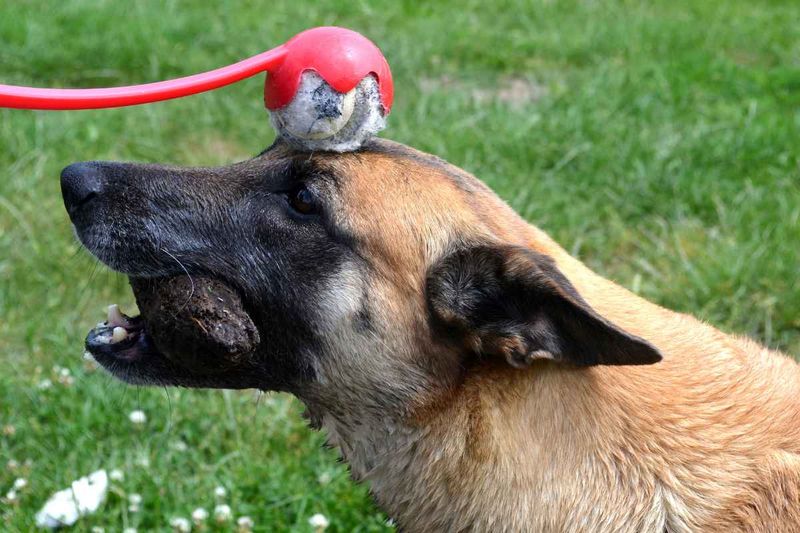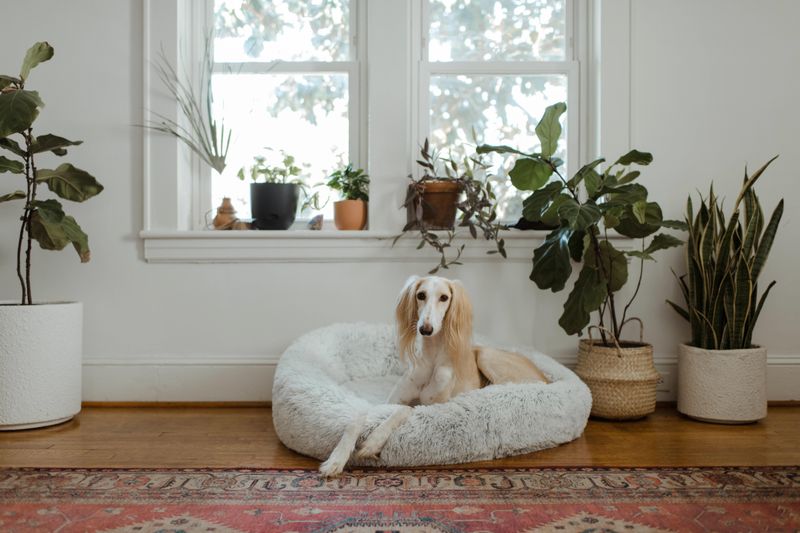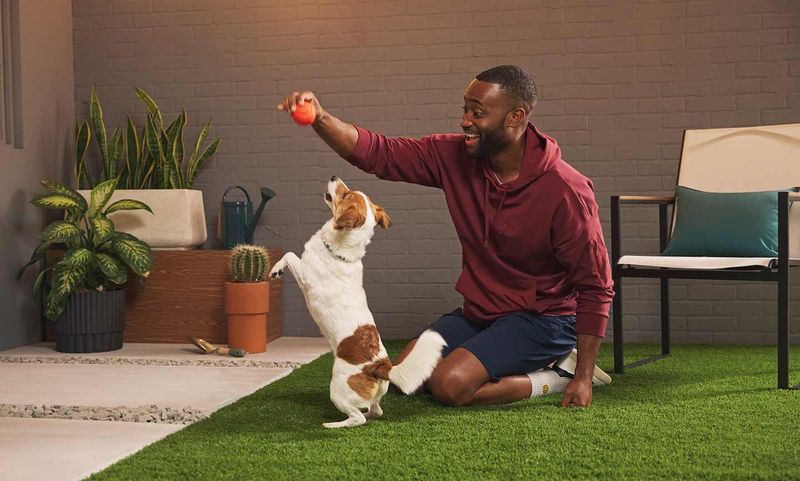Dogs are known for their loyalty and unconditional love, forming deep emotional bonds with their owners. However, certain actions by dog owners, often unintentional, can hurt their furry friends’ feelings. Understanding these behaviors can help cultivate a stronger relationship built on trust and affection. This post explores 15 common mistakes that might hurt a dog’s feelings and 10 actions that foster trust and companionship. By being mindful of these behaviors, dog owners can ensure a happier, more secure environment for their pets, ultimately enhancing the joy and connection shared with their canine companions.
Ignoring Your Dog
Imagine a dog with eyes full of longing, watching its owner absorbed in a glowing screen. Dogs crave attention and interaction, often feeling neglected when ignored for digital distractions. This can lead to sadness, as they don’t understand the concept of being “busy.”
Instead, taking short breaks to engage with your dog, whether through a quick game of fetch or a gentle pet, can make a world of difference. By acknowledging their presence, you reinforce their importance in your life.
A little attention goes a long way in making your dog feel loved and valued.
Yelling at Your Pet
Raised voices can be alarming for dogs, who don’t comprehend human language but easily pick up on tone. Shouting can trigger fear and anxiety, damaging the trust built between you. A gentle approach, using calm, positive reinforcement, fosters a sense of safety.
Dogs respond well to consistent, loving guidance. Instead of shouting when they misbehave, redirect them with patience and understanding. This not only preserves their emotional well-being but also strengthens the bond you share.
Remember, your dog looks to you for security. Create an environment where they feel cherished, not fearful.
Leaving Them Alone for Long Periods
Loneliness can cause distress in dogs, who are social creatures by nature. Spending extended hours alone can lead to sadness, and in some cases, destructive behavior. They miss your presence, companionship, and the routine interactions that fill their day.
Consider arranging playdates or hiring a dog walker to break up their solitude. Interactive toys can also provide mental stimulation.
Ensuring your dog feels secure and engaged in your absence can prevent emotional harm and reinforce the trust they have in you, knowing you’ll always return.
Inconsistent Training
Dogs thrive on routine and clear communication. Mixed signals during training can confuse your pet, leading to frustration and anxiety. Consistency is key to effective training and helps your dog understand expectations.
Use the same commands and rewards to establish a reliable routine. This stability builds confidence and a strong bond between you and your pet.
By maintaining consistency, your dog learns to trust your cues, feeling secure in their role within your household. A well-understood dog is a happy, confident companion.
Not Providing Enough Exercise
Imagine the boundless energy of a dog confined to a small space without an outlet. Regular exercise is crucial for physical health and emotional well-being. A lack of activity can lead to boredom, anxiety, and even depression.
Taking your dog for walks, runs, or engaging in playtime helps release pent-up energy and fosters happiness. Exercise provides mental stimulation, reducing stress and reinforcing your bond.
Creating a routine filled with physical activities ensures your dog feels loved and satisfied, both physically and emotionally. Movement is joy for your canine friend.
Skipping Routine Vet Visits
Regular vet visits are essential to catching health issues early, but some owners underestimate their importance. Skipping these appointments can lead to undiagnosed problems, causing discomfort or illness for your pet.
A proactive approach to health care demonstrates love and responsibility. Ensuring your dog’s health through routine check-ups builds trust, showing you’re attentive to their needs.
By prioritizing their well-being, you reassure your dog that they’re cherished. Healthy pets are happy pets, thriving with the assurance of your care and commitment.
Lack of Socialization
Socialization is crucial for a dog’s development, yet some owners inadvertently isolate their pets. Without exposure to new environments, people, and animals, dogs may become fearful or aggressive.
Introducing your dog to varied experiences builds confidence and adaptability. Regular visits to dog parks or pet-friendly events enrich their social skills.
Fostering these interactions shows your dog they are safe and loved, enhancing their emotional resilience and deepening your connection. A well-socialized dog is a joyful and secure companion.
Ignoring Their Body Language
Dogs communicate through body language, yet many owners overlook these signals. Misinterpretations can lead to stress and discomfort for your pet.
Observing and responding to cues like tail wagging, ear position, and posture helps you understand their emotions. Acknowledging these signals shows empathy and care.
By tuning into your dog’s non-verbal communication, you foster a supportive and understanding environment. This attentiveness builds trust and strengthens your emotional bond.
Feeding Them Inappropriate Foods
Feeding your dog inappropriate foods, even with the best intentions, can harm their health and feelings. Dogs may beg for human food, but not all items are safe or suitable for them.
Offering a balanced diet tailored to their needs ensures their well-being and happiness. Understanding their dietary requirements demonstrates care and responsibility.
A healthy diet leads to a happy, energetic dog. By providing nutritious meals, you show love and commitment to their health, solidifying the trust they place in you.
Lack of Routine
Dogs thrive on routine, finding comfort in predictable daily activities. Sudden changes can cause confusion and anxiety, disrupting their sense of security.
Maintaining a consistent schedule for meals, walks, and playtime helps your dog feel stable and loved. Routine provides structure, reinforcing your role as a dependable caregiver.
By upholding regularity in their daily life, you foster a trusting relationship, knowing their needs will be reliably met. Consistency is key to a content and confident canine companion.
Not Enough Mental Stimulation
Imagine a curious dog with a keen mind left unchallenged. Without mental stimulation, dogs can become bored and listless, leading to behavioral issues.
Engaging your pet with puzzles, games, and training exercises stimulates their intelligence and keeps them happy. Mental challenges provide a fulfilling outlet for their natural instincts.
By nurturing their cognitive needs, you enhance their quality of life and strengthen your bond. A mentally stimulated dog is a joyful, well-adjusted companion.
Uncomfortable Living Environment
Dogs, like humans, need a comfortable living environment to thrive. Overly cluttered or noisy spaces can cause stress and discomfort, affecting their emotional well-being.
Creating a calm, organized space where your dog can relax and feel safe is essential. Providing a designated area with their bed and toys helps them feel secure.
By ensuring a peaceful home environment, you show respect and care for your pet’s needs. A tranquil living space fosters trust and contentment, making your dog feel truly at home.
Not Listening to Their Needs
Dogs express their needs through vocalizations and behavior, yet sometimes owners fail to respond. Ignoring cues like barking or whining can lead to frustration and diminished trust.
Listening and responding to these signals is crucial. Whether they need to go outside, are hungry, or seek comfort, acknowledging their needs builds a strong emotional connection.
By being attentive, you show your dog that their feelings matter, reinforcing the bond of trust and understanding. A responsive owner is a dog’s best friend.
Punishing Them Harshly
Harsh punishments can break a dog’s spirit, leading to fear and anxiety. Dogs thrive on positive reinforcement, where good behavior is rewarded rather than mistakes being punished.
Using gentle correction and consistent guidance teaches your dog without damaging their trust. Encouraging good behavior through praise and treats fosters a loving relationship.
Building a positive environment ensures your dog feels safe and loved, strengthening your bond. Kindness and understanding pave the way for a harmonious life together.
Keeping Them on a Short Leash
Imagine the frustration of a dog eager to explore, held back by a short leash. While safety is important, overly restricting your dog’s movements can stifle their curiosity and joy.
Allowing them some freedom to sniff and explore within safe limits enriches their outdoor experiences. A balanced approach maintains control while respecting their need to investigate.
By granting your dog the opportunity to enjoy their surroundings, you enhance their happiness and trust in you. Freedom within boundaries fosters a content canine.
Raising Them in Isolation
Dogs are inherently social beings, and raising them in isolation can lead to emotional distress. Without regular interaction, dogs may become withdrawn or anxious.
Integrating them into family activities and providing opportunities for socialization enhances their emotional health. Whether through playdates or daily companionship, interaction is key.
By fostering a socially rich environment, you nurture your dog’s happiness and trust. A well-socialized dog is a beloved member of the family, thriving on connection and care.
Neglecting Grooming Needs
Grooming is more than aesthetics; it’s a crucial aspect of a dog’s health and happiness. Neglecting grooming needs can lead to discomfort and health issues, affecting their quality of life.
Regular grooming sessions offer an opportunity to bond, while keeping their coat and nails in optimal condition. This care shows your commitment to their well-being.
By attending to grooming needs, you demonstrate love and responsibility, building trust in your role as their caretaker. A well-groomed dog is a happy, comfortable companion.
Lack of Affection
Affection is a cornerstone of the human-dog relationship. Dogs thrive on love and attention, and a lack of it can lead to feelings of neglect or sadness.
Simple acts like petting, cuddling, or spending time together reinforce your bond. These gestures show your dog they are valued and cherished.
By giving affection freely, you affirm their place in your life, strengthening the emotional connection you share. Love is a powerful language, understood universally by dogs.
Playing Roughly
While playtime is essential, overly rough play can cause discomfort or fear in dogs. Understanding your pet’s limits and comfort level ensures play remains a joyful experience.
Adopting a gentle approach, using toys and games your dog enjoys, fosters positive interactions. Observing their reactions helps you tailor play to suit their needs.
By ensuring playtime is safe and enjoyable, you build trust and affection. A positive play experience strengthens the bond, making your dog eager for more fun together.
Teasing or Taunting
Teasing might seem harmless, but it can lead to frustration and anxiety in dogs. They may not understand the joke and feel confused or upset.
Treating your dog with respect and kindness ensures they feel safe and loved. Engaging in fair, enjoyable play builds trust and strengthens your relationship.
By avoiding teasing, you create a supportive environment where your dog thrives. Respectful interactions foster a bond built on mutual understanding and care.
Ignoring Their Health Signs
Dogs can’t verbalize discomfort, relying on owners to notice subtle health signs. Ignoring symptoms like lethargy or limping can lead to untreated issues.
Regularly observing your dog’s behavior and condition helps catch problems early, ensuring timely care. This vigilance reflects your commitment to their health.
By being attentive to their needs, you reassure your dog of your unwavering support. Proactive care builds trust and ensures a happy, healthy life together.
Providing a Safe Space
Dogs appreciate having a designated safe space where they can retreat and relax. This sanctuary offers comfort and security, especially during times of stress.
Creating a cozy area with a comfortable bed and favorite toys reinforces their sense of belonging. A safe space is a refuge, showing that you respect their need for personal comfort.
By providing this haven, you strengthen the trust and connection between you and your dog. A secure environment is the cornerstone of a happy, content pet.
Engaging in Regular Play
Play is a vital part of a dog’s life, offering exercise, mental stimulation, and joy. Regular playtime strengthens the bond with your pet, building trust and affection.
Whether through fetch, tug-of-war, or playful chases, engaging in activities your dog loves enhances their happiness. Playtime is an opportunity to connect on a personal level.
By prioritizing regular play, you nurture a joyful spirit and deep trust in your relationship. A playful dog is a happy dog, thriving on the love and attention you provide.
Using Positive Reinforcement
Positive reinforcement is key to successful training and a trusting relationship. Rewarding good behavior with treats, praise, or affection encourages more of the same.
This approach fosters a loving, respectful bond, where your dog feels appreciated and understood. It’s a gentle way to guide them, highlighting your role as a supportive leader.
By embracing positive reinforcement, you cultivate a harmonious environment where your dog thrives. Understanding and respect form the foundation of trust and loyalty.
Spending Quality Time Together
Quality time is the essence of a strong human-dog bond. Shared experiences like walks, outings, or quiet moments strengthen your connection.
By prioritizing these moments, you demonstrate love and dedication to your pet’s happiness. It’s a time for mutual enjoyment and deepening trust.
The memories you create together enrich your lives, reinforcing the unconditional love that defines your relationship. Time spent together is invaluable to a fulfilling partnership.
